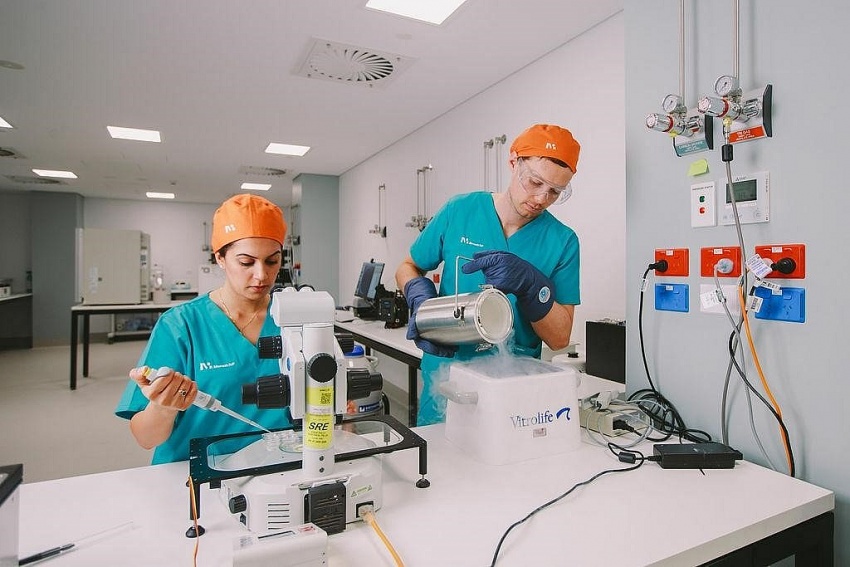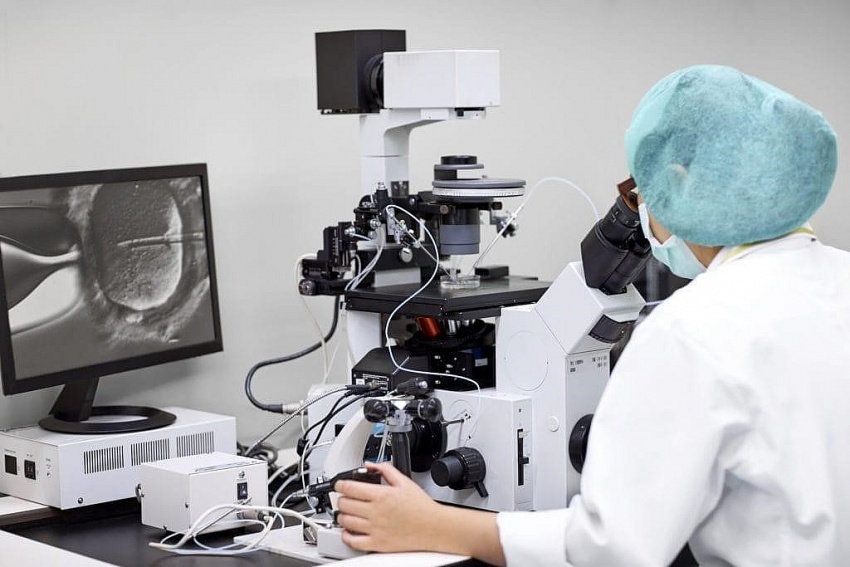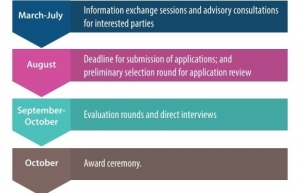AI breakthrough in IVF treatment
Current clinical practices that evaluate sperm morphology require human analysis and chemical staining of the sperm cells, which can cause damage. But this new method, from Monash University’s Department of Mechanical and Aerospace Engineering in collaboration with Monash IVF, works on live, unstained sperm, preserving their viability.
 |
The new study was published in Advanced Intelligent Systems and found the AI model could analyse sperm imaging with over 93 per cent accuracy in just a few seconds. By precisely choosing the highest quality sperm without affecting its viability, the technology could pave the way for standardised sperm selection through automation in IVF clinical settings.
Lead researcher Dr. Reza Nosrati said the speed and precision meant doctors could make better-informed decisions faster than ever before.
"The consistency and reliability of our AI model provide unprecedented accuracy in live sperm morphology classification. By providing a clear and precise analysis of sperm quality, it offers promising opportunities for enhancing clinical sperm selection practices and reducing day-to-day variability in clinics. With this tool, we hope to improve the outcomes of fertility treatments and offer new hope to couples struggling to conceive," Dr. Nosrati said.
Sahar Shahali, lead-author of the work and the PhD candidate, added that the technology’s adaptability made it a versatile tool for clinics worldwide.
"The technology has been tested and proven to work effectively with images of various resolutions. This means it can be easily integrated into different clinical environments, providing reliable results regardless of the equipment used," Shahali said.
 |
According to Monash IVF chief scientific officer, Prof. Deirdre Zander-Fox, the technology has great potential to make the sperm selection process faster and improve outcomes.
"Sometimes in IVF, embryologists need to inject a single sperm directly into an egg to increase the chances of fertilisation. While they are experts at finding the best sperm for this process – sperm that’s the right shape and size and moves around freely - it can sometimes take hours to sift through a sample to find the best sperm for injection. We believe AI can make the process much faster and give patients improved outcomes, while still allowing our highly trained embryologists to have oversight of the process," said Zander-Fox.
"Following on from this research, Monash IVF hopes to create an AI algorithm that could be used to power a sperm selection device to guide embryologists on which sperm to choose at the time of microinjection to help improve IVF outcomes," she added.
 | How businesses are embracing AI The rising tide of AI redefines how businesses operate and make decisions. Nguyen Hoang Nhan, director of Technical & Digital Innovation and IT Advisory at KPMG in Vietnam, explores vital AI trends that businesses can apply to enhance performance, save costs, and elevate the customer experience. |
 | Vietnam eyes comprehensive ecosystem for AI technology Tech companies are facing huge opportunities to develop AI and semiconductors with the support of the government and authorities. |
 | Influence of AI technology can reshape labour market The employment market is anticipated to experience disruptions as AI technology becomes increasingly adopted by businesses for intelligent, sustainable management and operations. |
 | AI changing teaching and learning During a panel discussion themed "Innovative Teaching for Accounting and Finance: Technology and Beyond" held by the Association of Chartered Certified Accountants (ACCA) on May 29, experts from various universities in the region discussed and recommended ways of using AI in teaching and studying. |
What the stars mean:
★ Poor ★ ★ Promising ★★★ Good ★★★★ Very good ★★★★★ Exceptional
Themes: Healthcare Platform
- Hanoi intensifies airport monitoring amid Nipah disease risks
- Cosmetics rules set for overhaul under draft decree
- Policy obstacles being addressed in drug licensing and renewal
- Sanofi, Long Chau Pharmacy relaunch medicine blister pack collection initiative
- Takeda Vietnam awarded for ongoing support of Vietnam’s sustainability efforts
Related Contents
Latest News
More News
- Hanoi intensifies airport monitoring amid Nipah disease risks (January 29, 2026 | 15:21)
- List of newly-elected members of 14th Political Bureau announced (January 23, 2026 | 16:27)
- 14th Party Central Committee unanimously elects To Lam as General Secretary (January 23, 2026 | 16:22)
- List of members of 14th Party Central Committee announced (January 23, 2026 | 09:12)
- Highlights of fourth working day of 14th National Party Congress (January 23, 2026 | 09:06)
- Press provides timely, accurate coverage of 14th National Party Congress (January 22, 2026 | 09:49)
- Press release on second working day of 14th National Party Congress (January 22, 2026 | 09:19)
- Minister sets out key directions to promote intrinsic strength of Vietnamese culture (January 22, 2026 | 09:16)
- 14th National Party Congress: Renewed momentum for OVs to contribute to homeland (January 21, 2026 | 09:49)
- Party Congress building momentum for a new era of national growth (January 20, 2026 | 15:00)

 Tag:
Tag:

























 Mobile Version
Mobile Version